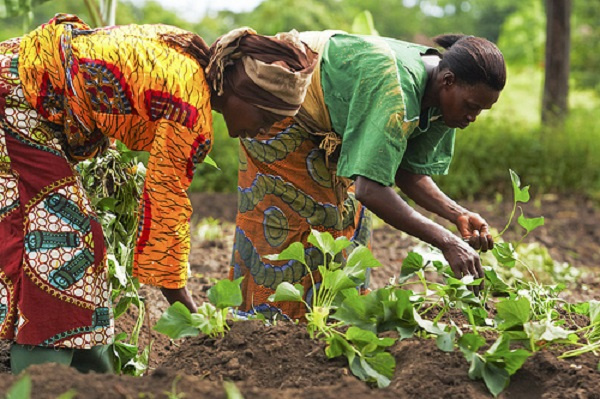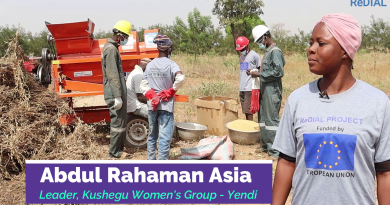ReDIAL Project Supports Over 320 women farmers In Ghana with improved threshing technology
Yendi(N/R), March 23, GNA – The Research for Development and Innovation Agriculture and Learning (ReDIAL) project has supported over 320 women farmers in Ghana with improved threshing technology. The the-four-year project, which is funded by the European Union (EU) under the EU’s initiative on Climate-relevant Development Smart Innovation through Research in Agriculture(DESIRa) and food systems in developing countries, seeks to reduce hunger, poverty, enrich and empower women economically.
The ReDIAL project has so far reached over 320 women grains and cereal farmers in five specific Districts/Municipalities and Regions in Ghana. They are Yendi in the Yendi Municipality of the Northern Region, Techiman in the Bono-East Region, Ejura Sekyere-Dumasi Municipality in the Ashanti Region, Sefwi-Wiawso District in the Western-North Region, and Kwahu Afram Plains North of the Eastern Region. The project has introduced to the farmers, Multi-Crop Thresher technology for the threshing of cereals and grains.
It is under the auspices of a consortium of three implementing partners led by Friends of the Nation(FoN), Tropenbox, and the faculty of Renewable Natural Energy at the Kwame Nkrumah University of Science and Technology(KNUST) with funding from the European Union (EU).
The Project Manager of FoN, Mr. Kojo Kyei Yamoah told the GNA in an interview that the project was helping women to increase productivity by addressing the problems of manual threshing. He said ReDIAL was by this technology, contributing to liberating many women and children, who are used as labourers for the manual threshing for many weeks. Mr. Yamoah said, “in most cases, such children do not go to school for many weeks until the manual threshing is over”.
He noted that manual threshing of grains by hand beating is a practice used by farmers in Ghana to thresh their grains after harvesting however, manual threshing results in about 35% grain loss, grain breakage, and incomplete separation of the grain from the chaff.
“Manual threshing also results in seed breakage and the presence of stones in the final product that reduces the market value”.
“Manual threshing is also labour intensive and time-consuming process that requires high human energy and drudgery for farmers especially women and children”.
It is to address this problem, that the ReDIAL Project has introduced an innovative, very efficient, and low-cost locally manufactured Multi- crop thresher technology that reduces post-harvest losses in threshing of grains and cereals by up to 30%.
Mr. Yamoah said already 10 units of the Multi-Crop Threshers have been secured by the project and distributed to the five project districts in Ghana. The FoN Project Manager admitted that Multi-Crop Thresher was about 60 times faster and cheaper than manual threshing, adding that it threshes maize, rice, soybeans, common beans, and five other different species of cereal crops but requires little maintenance and only two people for the operation and produces quality grains and increased income.
“The simple Multi-Crop Thresher unit is mobile and is moved around and therefore provides service for many farmers in remote areas”, he emphasized. Mr. Yamoah hinted that the ReDIAL project was also working on an improved version of the Multi-Crop Thresher that would be powered with solar energy and work with farmers and stakeholders to validate the performances aimed at promoting sustainable renewable energy that is climate-friendly and further reduce the cost of operation.
The project is supported by two private sector companies SAYeTECH Company and SESI Technologies.
Source: GNA


